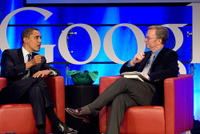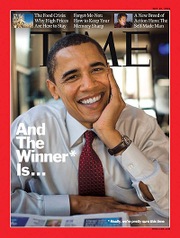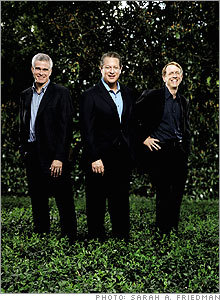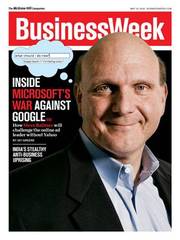Think of this as Volume 11, Number 19 of A-Clue.com, the online newsletter I’ve written since 1997. Enjoy.
In most of the items marked Crisis of 2008 I have emphasized the difficulties in the time we’re living with, the problems, the dangers.
But it is also vital, sometimes, to look at the opportunities, and to see the hope rising all around us.
I’m fortunate to find such things often in my work. Sometimes I bring them to you. Here are two just from this week:
- Simple breakthroughs in things like capacitors that can improve the efficiency of electric motors by as much as 300%.
- Breakthroughs in telemedicine which Microsoft is quickly taking advantage of.
Science and engineering are using the benefits of Moore’s Law to create progress at a Moore’s Law rate. That is breakthroughs are coming faster-and-faster, fast enough (perhaps) to halt the present processes destroying human life on this planet, and even turn them around.
If, that is, they can be brought into the world rapidly enough. The society which brings them to the market most rapidly will have the greatest share in the resulting prosperity.
What we need to make this happen is a process revolution. I am talking about accelerating both economic and political processes. We need to change business’ processes so companies make more money solving problems than causing them, as they have in this decade. And we need to change the way political change occurs at a fundamental level.
A generation ago Republicans talked about making government run more like a business. Now we need businesses to start taking their societal responsibilities seriously.
You do that by changing incentives.
- Right now electric utilities have more incentives to build power plants than to build efficiency into our electrical grid. We can change that.
- Right now drug companies have more incentives to create "me-too" drugs with patent protection than to produce generics we know work. We can change that.
- Right now energy producers have more incentives to withhold product from the market than to produce it. We can change that.
- Right now companies have more incentives to create monopolies than to open new markets. We can change that.
- Right now companies have more incentives to create paper than to see loans are repaid. We can change that.
When Al Gore talks about trading carbon credits, this is really what he’s talking about, creating an incentive to emit less carbon by simply putting a price on it.
None of these changes are terribly difficult. Most are just a matter of will. And when we put the power of the market to work on the world’s problems, pointing to those problems as opportunities with profits going to those who create solutions, positive change can happen quickly.
But that’s not all.
We can do the same thing in the political arena.
It is not ordained by God that we should have a politics based solely on conflict, rather than a shared search for solutions. Once the Bush Republican Party is discredited, it can be dismissed and its remnants brought along based on consensus.
We need to create a more consensual style of politics. That is, we need to find where we agree and work out from there, rather than finding where we disagree and working in.
The Internet can play a big part in that. It can be the forum where we bring our disagreements and our arguments to light. This would make the government process much more transparent. And we can do that. We already have the technology. Wikis are easy. Putting people in charge of a wiki, and having them base their reports on what goes in, is a simple process change with great power.
Leaders can play a role in that, by toning down their rhetoric. Voters can play a role in that by supporting leaders who dial it down over those who emphasize conflict. The media can play a role in that by talking about issues instead of personality.
This process change will take time to build. But it can be done. What’s required is political will, a massive coalition, and structures that will channel disagreements toward solutions rather than power for its own sake.
The more transparent we can make the policy process, the more accessible we can make the facts on which policy is based, the faster the progress we can make. It’s not possible in a media landscape dominated by TV. It is possible in one dominated by the Internet, because the Internet doesn’t just deliver instant feedback, but instant feedback in depth. It’s like drinking out of a fire hose — you have to step back and let it drain into a container, then shut off the stream, then deal with the container. You have to apply structure — you can’t just shoot from the lip.
Putting technocrats who prize data in power rather than politicians who prize loyalty is a good first step. Putting technological resources behind every debate is a good second step. Following the data rather than ideology is a third step. Gradually bringing critics into the process is a fourth step.
It may seem counter-intuitive to build a more repaid change process on smaller steps, but what you’re trying to build here is a new structure for processing change, and for changing policy, one based on entirely different metrics. So it’s essential you get the structure right, first. Working on structure is bound to help dial-down rhetoric.
The idea is reminiscent of an old story from the Coca-Cola Co. It was 1923, and Robert Woodruff had just been named President of the company. The bottlers and the corporate bureaucrats were at one another’s throats over the price of syrup, because sugar prices were rising and adjustments in syrup prices were the key to profit. The company was being torn apart, about to go under. Woodruff didn’t address that question at all. Instead he asked, "how do we make certain each bottle of Coca-Cola tastes the same as every other bottle, no matter where in the world it’s purchased?"
Re-focus the argument from result to process. Change the process and you change the way the political system works, not only in the short term but in the long term. Build a more consensual process, where data and facts count, and the change which results is bound to be positive.
I know this doesn’t sound as exciting as what I said earlier about science and markets. It’s meant to be that way. Government should not be where the action is. It should be about exception-handling. The market should be where the action is, because the market works fast. Guarantee that the market is competitive, that market incentives are all in favor of solutions, that there are cops on the beat for those who don’t follow clear rules, and you will have positive growth.
People like Al Gore, not just Al Gore himself, will eventually decide that their interests are best served in the market, creating solutions, rather than in the government creating policy. When they find they can impact policy from wherever they are, rather than having to waste resources on a Washington presence, they’ll spend more time solving problems profitably than trying to set policy, and everyone will benefit.
This is really the way the American system is meant to work. A people’s house which turns over regularly. A more deliberative legislative body. An Administration dedicated to enforcing laws. A court system which adjudicates. A market system where the real action is. Not very sexy.
Not nearly as sexy as a new capacitor, if you work it right. But a lot more powerful, if it gets that capacitor to market quickly.
This is the real Internet Thesis. Apply the Internet to the process of governing.














